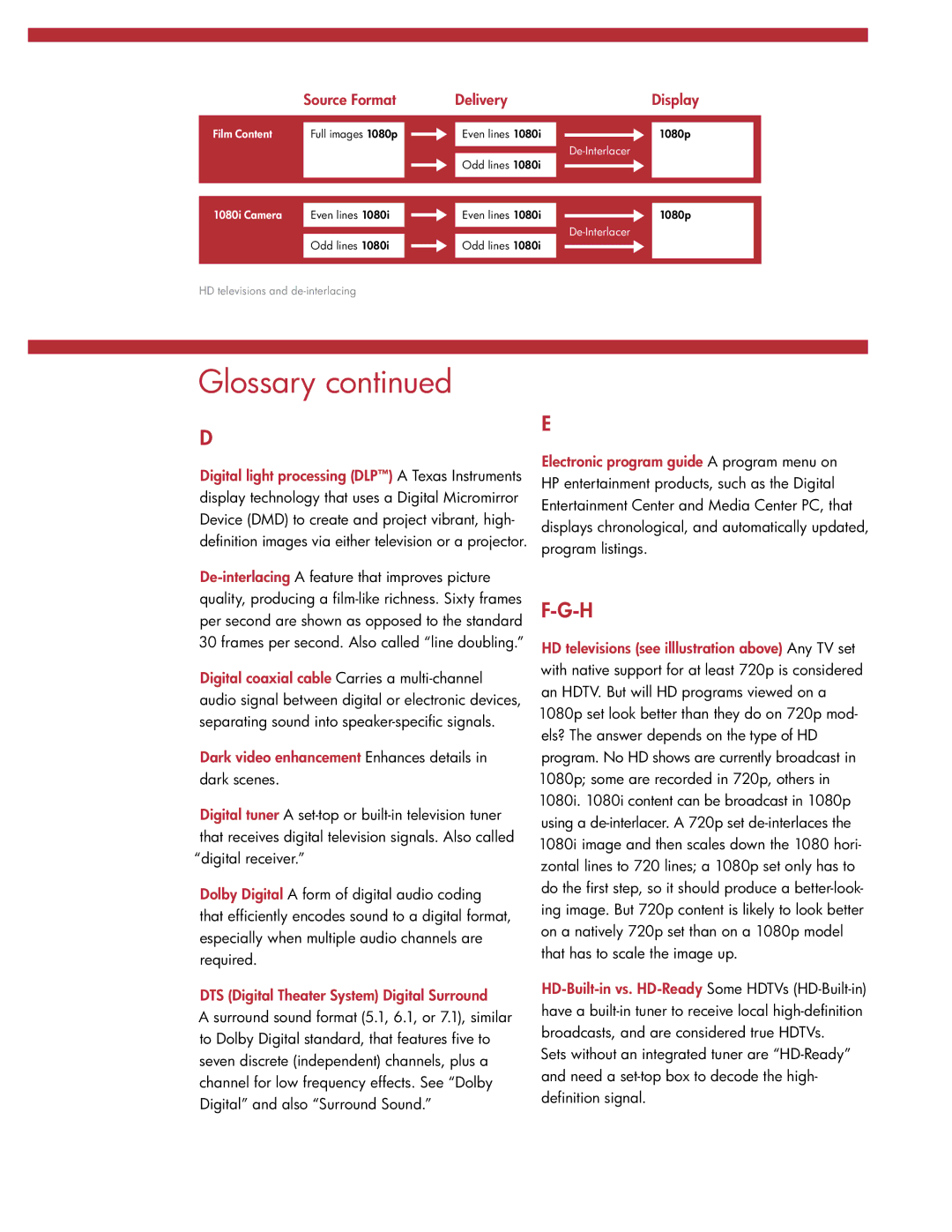
| Source Format | Delivery | Display | |||
|
|
|
|
|
|
|
|
|
|
|
|
|
|
Film Content | Full images 1080p |
| Even lines 1080i |
| 1080p |
|
|
|
|
|
|
| |
|
|
|
| |||
|
|
| Odd lines 1080i | |||
|
|
|
|
|
| |
|
|
|
|
|
|
|
|
|
|
|
|
|
|
|
|
|
|
|
|
|
|
|
|
|
|
|
|
1080i Camera | Even lines 1080i |
| Even lines 1080i |
| 1080p |
|
|
|
|
|
|
| |
|
|
|
| |||
| Odd lines 1080i |
| Odd lines 1080i | |||
|
|
|
|
| ||
|
|
|
|
|
|
|
|
|
|
|
|
|
|
HD televisions and
Glossary continued
D
Digital light processing (DLP™) A Texas Instruments display technology that uses a Digital Micromirror Device (DMD) to create and project vibrant, high- definition images via either television or a projector.
Digital coaxial cable Carries a
Dark video enhancement Enhances details in dark scenes.
Digital tuner A
Dolby Digital A form of digital audio coding
that efficiently encodes sound to a digital format, especially when multiple audio channels are required.
DTS (Digital Theater System) Digital Surround
A surround sound format (5.1, 6.1, or 7.1), similar to Dolby Digital standard, that features five to seven discrete (independent) channels, plus a channel for low frequency effects. See “Dolby Digital” and also “Surround Sound.”
E
Electronic program guide A program menu on HP entertainment products, such as the Digital Entertainment Center and Media Center PC, that displays chronological, and automatically updated, program listings.
HD televisions (see illlustration above) Any TV set with native support for at least 720p is considered an HDTV. But will HD programs viewed on a 1080p set look better than they do on 720p mod- els? The answer depends on the type of HD program. No HD shows are currently broadcast in 1080p; some are recorded in 720p, others in 1080i. 1080i content can be broadcast in 1080p using a
Sets without an integrated tuner are
